Plant-based musk alternatives provide sustainable, cruelty-free options for your fragrances. Ambrette seed offers a soft, sweet scent that pairs beautifully with vanilla and rose, while labdanum delivers rich, amber-like notes perfect for oriental blends. You'll find angelica root brings earthy, spicy elements, and costus root adds depth to spiritual scents. These natural substitutes not only match traditional musk's sensual qualities but also support biodiversity and ethical practices – and there's so much more to discover.
Understanding Traditional Musk and Its Environmental Impact
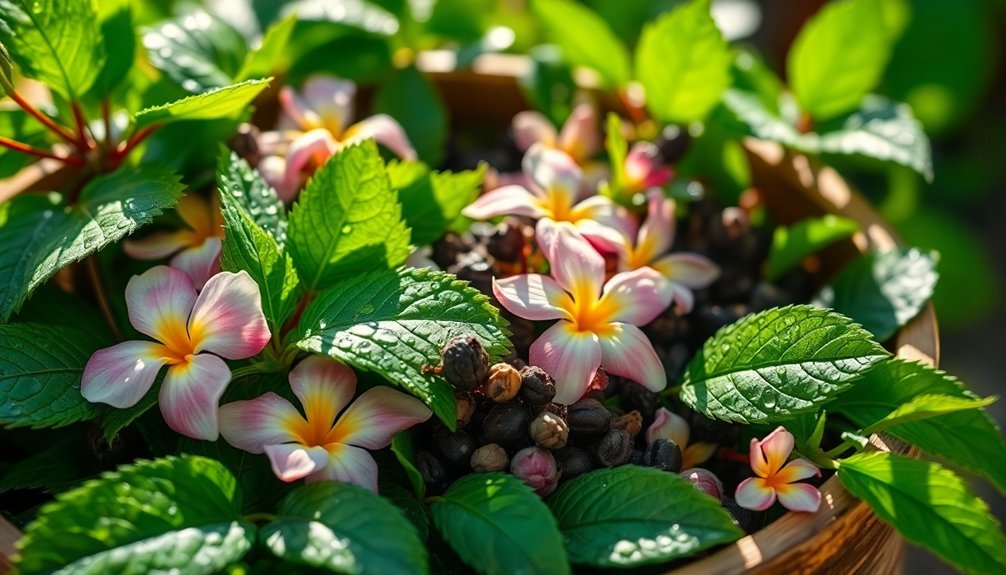
While musk fragrances remain highly sought after in perfumery, their traditional source has a complex and controversial history. Before 1979, musk was harvested from the glands of male musk deer through cruel methods that contributed to the species' near extinction.
This practice wasn't only unethical but also environmentally devastating, pushing the musk deer onto the endangered species list.
You'll find that traditional musk's use as a perfume fixative ended when international laws banned its trade and protected the deer. This ban was vital for conservation efforts and marked a turning point in the fragrance industry.
The shift away from natural musk has sparked innovation in sustainable alternatives, with manufacturers developing plant-based and synthetic options that don't harm animals or threaten endangered species. Botanical sources like musk mallow have emerged as effective natural alternatives that provide similar aromatic qualities.
The Rise of Botanical Alternatives in Modern Perfumery
You're witnessing a remarkable shift in the fragrance industry as botanical alternatives revolutionize traditional perfumery practices.
Natural ingredients like ambrette, angelica root, and labdanum now offer sustainable solutions to replace animal-derived musks while maintaining the complex, sensual characteristics that perfume enthusiasts cherish.
These plant-based alternatives represent both innovation in modern perfumery and a response to your growing demand for ethical, environmentally conscious fragrances. Many of these natural substitutes serve as excellent fixative properties, helping to enhance and prolong the overall fragrance composition.
Sustainable Fragrance Revolution
As consumers become increasingly eco-conscious, the fragrance industry has undergone a dramatic transformation toward sustainable and botanical alternatives. You'll find that 74% of fragrance enthusiasts now prefer sustainable options, driving manufacturers to innovate with natural ingredients and eco-friendly practices. Bespoke scent design continues to push boundaries in reducing environmental impact while maintaining luxury appeal.
| Sustainable Aspect | Consumer Benefit | Environmental Impact |
|---|---|---|
| Natural Ingredients | Healthier Options | Biodiversity Protection |
| Green Chemistry | Safer Products | Reduced Carbon Footprint |
| Ethical Sourcing | Product Transparency | Community Support |
You're now part of a revolution where perfume makers prioritize responsible sourcing, green chemistry, and innovative technologies. This shift isn't just about creating beautiful scents – it's about ensuring every aspect of fragrance production, from ingredient selection to packaging, meets rigorous sustainability standards while delivering the exceptional olfactory experiences you expect.
Natural Perfumery's Growing Impact
The natural perfumery movement has gained remarkable momentum, transforming the fragrance industry with botanical alternatives that appeal to health-conscious consumers.
You'll find a growing array of plant-derived ingredients, from essential oils to natural resins, meeting the increasing demand for sustainable fragrances.
With 75% of consumers prioritizing natural ingredients, perfume houses are responding with innovative botanical solutions.
You can now choose from an extensive palette of natural scents including:
- Aromatic herbs like rosemary, basil, and tarragon
- Traditional elements such as woods, flowers, and spices
- Sustainable citrus notes and plant-based resins
The market's projected growth of $1.59 billion by 2025 reflects your growing interest in natural alternatives.
While extraction methods may be limited, perfumers continue to develop creative solutions that maintain the integrity of natural fragrances while meeting modern sustainability standards.
Ambrette Seed: Nature's Perfect Musk Substitute
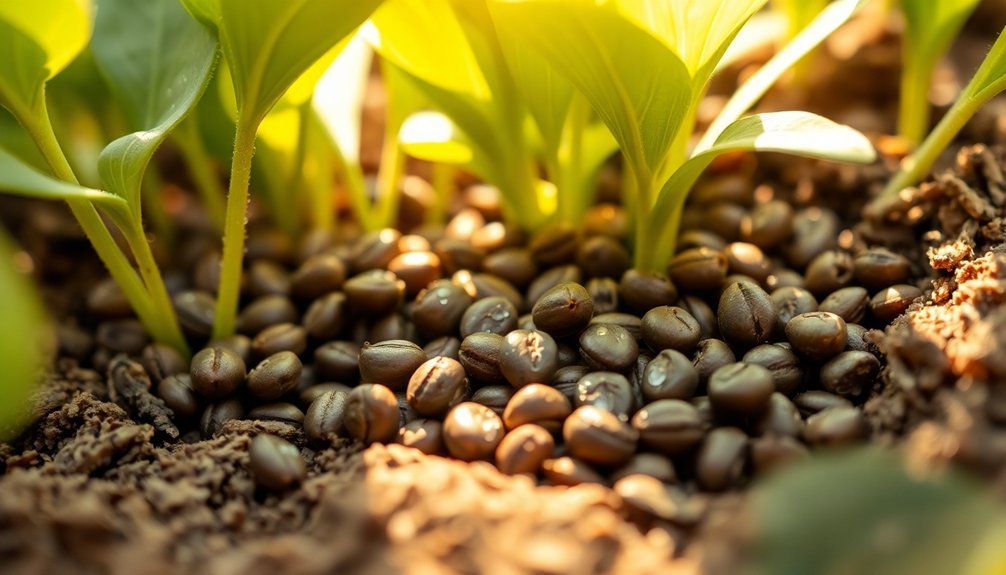
Nestled within the hibiscus family, ambrette seed (*Abelmoschus moschatus*) stands out as nature's premier musk alternative. You'll find this botanical treasure growing in tropical Asian forests, producing distinctive yellow flowers that develop into precious seed pods.
| Feature | Benefit |
|---|---|
| Scent Profile | Soft, sweet, woody with fruity pear notes |
| Fixative Properties | Extends fragrance longevity naturally |
| Blending Potential | Pairs with citrus, floral, and oriental notes |
| Therapeutic Value | Reduces anxiety and supports skin health |
What makes ambrette truly special is its ambrettolide content, creating that coveted musky, powdery aroma you're seeking in natural perfumery. Whether you're crafting a signature scent or seeking therapeutic benefits, this versatile botanical delivers both sensual depth and healing properties, making it an ideal choice for conscious fragrance creation.
Labdanum: The Mediterranean's Gift to Perfumery
Deep within the rocky hills of Mediterranean coastlines, labdanum resin emerges as a treasured aromatic substance from the Cistus ladanifer shrub.
Perfumers prize this ancient resin for its complex scent profile that closely resembles ambergris and black musk, making it a perfect cruelty-free alternative.
You'll find labdanum's versatility shines in modern perfumery, where it serves as:
- A powerful base note that anchors and extends fragrance longevity
- A sophisticated addition to oriental and chypre compositions
- A natural enhancer for floral and citrus blends
Beyond its practical applications, labdanum carries rich historical significance.
From ancient Egyptian rituals to modern meditation practices, this resin's grounding and calming properties have made it a cherished ingredient in spiritual and aromatic traditions worldwide.
Angelica Root: An Earthy Approach to Musk Notes
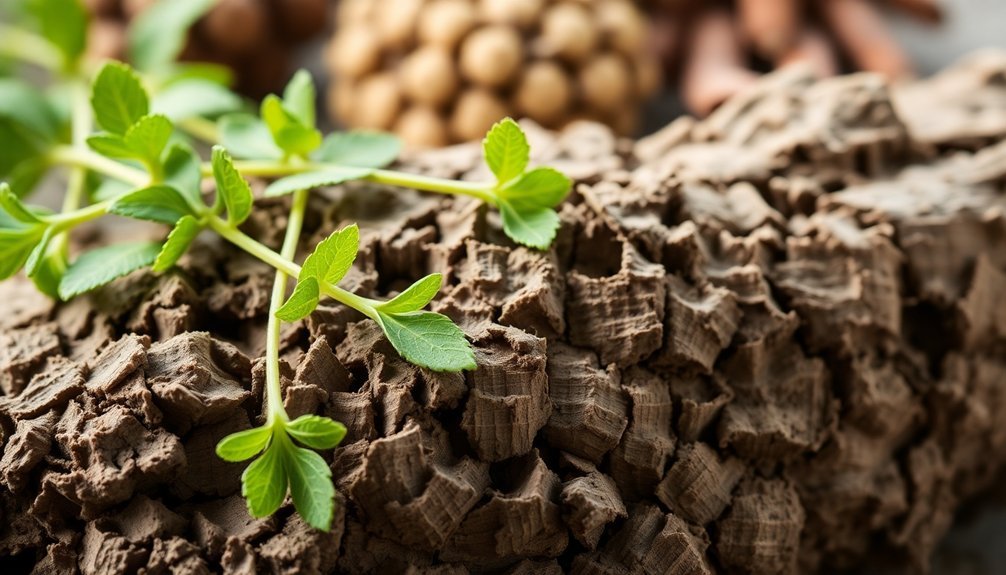
You'll find Angelica root's musky character comes from its complex blend of earthy, spicy, and herbaceous notes, anchored by natural musk-like compounds like cyclopentadecanolide.
Its remarkable depth and persistence make it a prized ingredient in natural perfumery, where it adds a sophisticated musky backbone to botanical blends.
When properly harvested and distilled, the root yields an essential oil that captures both bright, peppery top notes and deep, woody base notes that mirror traditional musk's grounding qualities.
Angelica's Rich Aromatic Profile
Angelica root emerges as a compelling alternative to traditional musk, offering a complex bouquet of earthy, green, and spicy notes that unfold in layers.
You'll discover its rich fragrance profile contains cyclopentadecanolide, a natural musk-like lactone that creates its distinctive aroma. This member of the Apiaceae family shares aromatic qualities with its relatives like anise and fennel, while maintaining its unique character.
When working with angelica root, you'll want to note these key characteristics:
- Deep, rooty-herbaceous base with fresh, spicy overtones
- Peppery top notes that evolve into clean, musky undertones
- Natural affinity for blending with wood oils, spices, and citrus
Remember to exercise caution with topical applications, as angelica root is highly phototoxic and should be properly diluted before use.
Natural Musk-Like Base Notes
While traditional musk remains a coveted fragrance ingredient, natural musk-like base notes offer compelling alternatives for modern perfumery. You'll find several plant-based options that deliver similar depth and longevity to traditional musk, without ethical concerns.
| Plant Source | Key Characteristics | Best Paired With |
|---|---|---|
| Ambrette Seed | Sweet, floral-musky | Vanilla, Rose |
| Labdanum | Warm, amber-like | Oud, Sandalwood |
| Costus Root | Earthy, spicy | Frankincense, Myrrh |
| Sumbul | Light, airy musk | Benzoin, Florals |
These natural alternatives excel as fixatives, helping your fragrances last longer while adding complexity. You can blend them with other ingredients like sandalwood and vanilla to create rich, nuanced scents that rival traditional musk's performance.
Harvesting and Processing Methods
Successfully harvesting and processing angelica root requires careful timing and proper technique to capture its distinctive musk-like properties.
You'll want to harvest the roots in autumn after the first year of growth, before the foliage dies back considerably. Using a garden spade, dig up only a third of your crop to guarantee future harvests.
When processing, clean the roots gently in tepid water and cut them into manageable sections. For tinctures, aim for a 1:2 or 1:3 ratio using a food processor to achieve ideal strength.
Key safety considerations include:
- Never apply topically before sun exposure due to phototoxicity
- Perform patch tests before using the essential oil
- Avoid use during pregnancy or if diabetic
The processed root will retain its musky aroma for up to 5 years when properly stored.
Galbanum: The Green Revolution in Musk Alternatives
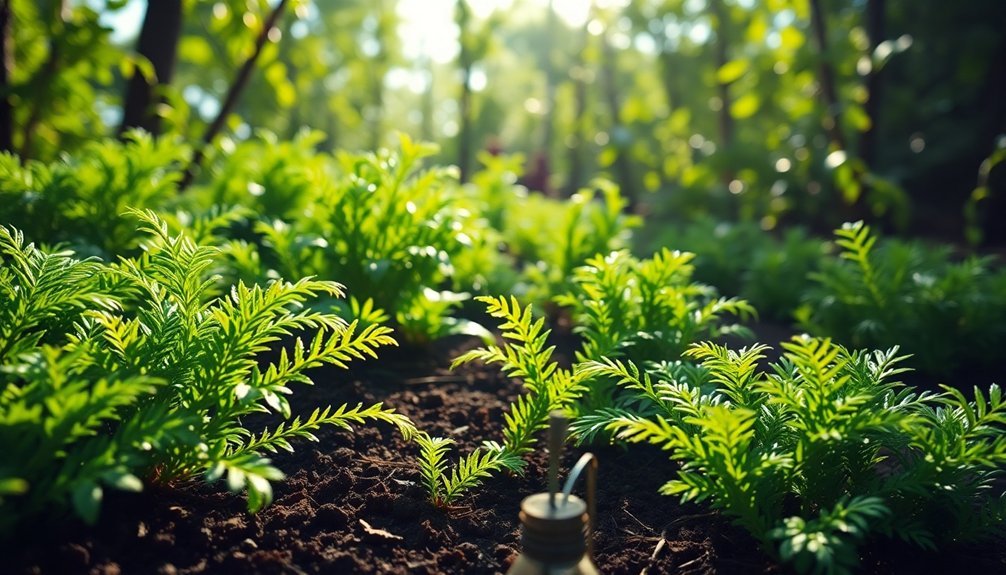
As perfumers seek sustainable alternatives to traditional musk, galbanum has emerged as a revolutionary green solution in modern fragrance creation.
You'll find this resinous extract from the Ferula galbaniflua plant offering a powerful, leafy-earthy aroma that's both mystical and primitive.
What makes galbanum particularly valuable is its exceptional fixative properties, helping your fragrances last longer while stabilizing other notes.
When you're looking for a sustainable musk alternative, you'll appreciate how this versatile ingredient complements floral, chypre, and oriental compositions without overpowering them.
You can spot it in iconic scents like Chanel No. 19, where it adds that distinctive fresh, green character.
Beyond perfumery, you'll benefit from galbanum's therapeutic properties in aromatherapy, skincare, and massage applications, making it a truly multifaceted natural alternative.
Essential Botanical Blends for Musk-Like Fragrances
When seeking to create authentic musk-like fragrances, botanical blends offer a sophisticated and sustainable solution.
You'll find that combining key ingredients like ambrette seed CO2, patchouli premium dark, and vetiver creates a deep, rich base that closely mimics traditional musk notes.
To achieve the perfect musk-like blend, consider these essential combinations:
- Mix resinous elements like benzoin and labdanum with earthy vetiver for a classic musk profile
- Layer CO2 extracts of ambrette seed with woody notes like amyris bark for a soft, animalic scent
- Balance the blend with sweet elements such as vanilla and gurjun balsam
These plant-based alternatives aren't just cruelty-free and sustainable – they're also cost-effective and versatile enough to use in perfumes, skincare products, and aromatic diffusions.
Creating Your Own Plant-Based Musk Accord
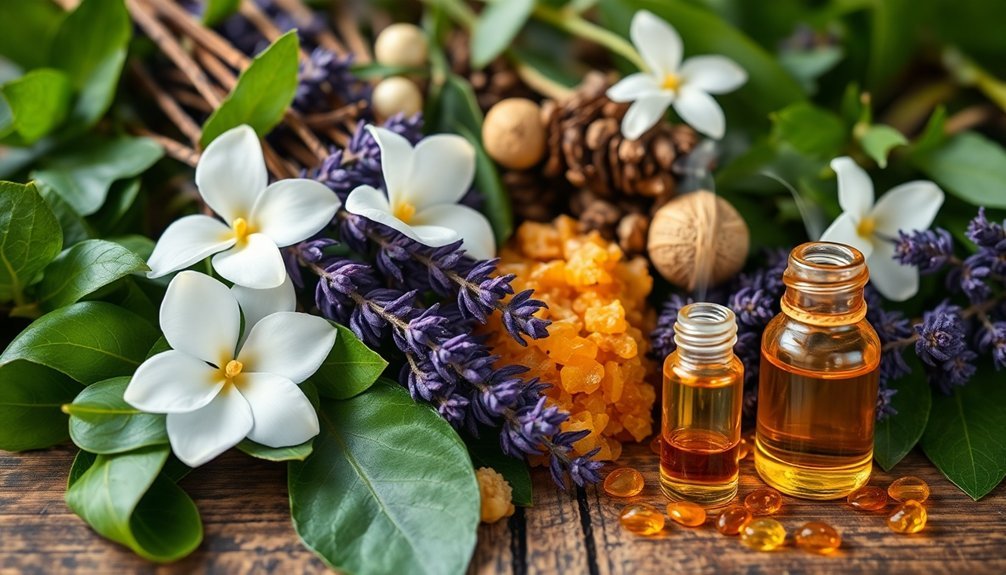
To create your own plant-based musk accord, you'll need essential base ingredients like labdanum, oud, and vanilla, along with a carrier oil or perfumer's alcohol.
Start by mixing these ingredients according to recommended proportions: 30% labdanum, 20% oud, 15% vanilla, and 35% carrier base, adjusting the ratios based on your desired intensity.
Once you've combined your ingredients, test small batches on perfume strips and skin to evaluate the scent's development over time, making careful notes of any adjustments needed for your perfect musk accord.
Essential Base Ingredients Needed
Creating a plant-based musk accord requires several key botanical ingredients, with ambrette seeds serving as the cornerstone.
You'll find these seeds derived from the hibiscus plant, particularly Hibiscus Abelmoschus, offering a sweet, floral musk quality that's vital for your base.
To create an effective plant-based musk accord, you'll need:
- Ambrette absolute, which provides the primary musky note after palmitic acid removal
- Natural compounds like isoeugenol and eugenol to enhance the woody, spicy aspects
- Supporting botanical extracts from musk mallow for added powdery notes
When working with these ingredients, it's essential to take into account their interaction with other fragrance families.
You can blend them with citrus, floral, oriental, or woody accords to achieve your desired scent profile.
Remember that proper extraction methods, particularly supercritical CO2 extraction, will yield the best results.
Blending Proportions Guide
Successful plant-based musk accords rely on precise proportions and careful balancing of key ingredients. You'll want to start with a strong base of Galaxolide at 30% to establish the primary musk note and guarantee longevity. Build upon this foundation by adding complementary ingredients in specific ratios.
| Ingredient | Recommended % |
|---|---|
| Galaxolide | 30% |
| Benzyl Salicylate | 15% |
| Ethylene Brassylate | 15% |
| Ambrettolide | 10% |
For depth and character, incorporate smaller amounts of supporting notes. Add 5% Rosewood Essential Oil for woody undertones, and minimal amounts of Ethyl Vanillin (2-3%) for warmth. Remember to use Ambrette Seed Oil sparingly as a natural fixative, typically at 5% or less, to maintain the accord's balance while guaranteeing a lasting, authentic musky scent.
Testing Your Musk Creation
Once you've blended your musk accord according to the recommended proportions, proper testing becomes essential for evaluating its performance and making necessary adjustments.
Conduct your testing on perfume strips and observe how the scent develops over several hours. Pay attention to the interaction between different plant-based components like ambrette seed, labdanum, and oakmoss.
To guarantee your creation meets quality standards, follow these testing protocols:
- Apply small amounts to different skin areas to check for potential allergic reactions and assess how the scent interacts with your body chemistry
- Document the scent's evolution at intervals (15 minutes, 1 hour, 4 hours) to evaluate longevity
- Test under various environmental conditions to verify the stability of your plant-based blend
Sustainability Benefits of Botanical Musk Alternatives
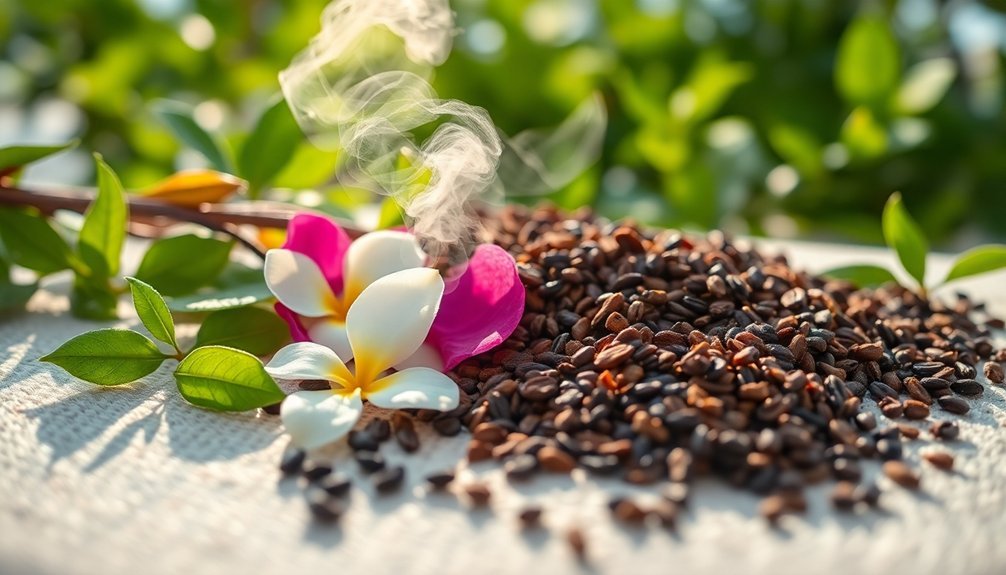
While traditional musk production has long raised environmental concerns, botanical musk alternatives offer significant sustainability benefits that extend far beyond simple fragrance substitution.
You'll find that plant-based musks, particularly from sources like the ambrette plant, help preserve biodiversity by eliminating the need for animal harvesting and reducing habitat disruption.
These alternatives support a cleaner production process that uses less water, requires minimal arable land, and avoids harmful chemicals. By choosing botanical musks, you're contributing to responsible resource management and ecosystem protection.
Plus, you're supporting an industry that's driving innovation in sustainable practices. The growing market for these alternatives encourages more companies to develop eco-friendly options, creating a positive cycle of sustainable production and conscious consumption.
The Science Behind Plant-Based Musk Notes
The molecular composition of plant-based musk notes reveals why they've become such effective alternatives to traditional animal-derived musks.
Natural macrocyclic ketones and lactones form the foundation of these botanical alternatives, providing powerful binding elements that guarantee long-lasting scents without overwhelming intensity.
You'll find these essential compounds in various plant-based options:
- Ambrette absolute, derived through careful distillation and processing to remove palmitic acid
- Ambroxan, extracted from clary sage, offering warm, ambery notes
- Natural macrocyclic lactones, produced from sustainable substrates using advanced technology
These plant-derived compounds interact naturally with your skin while delivering the depth and richness traditionally associated with animal musks.
Modern processing techniques have made these alternatives more accessible and consistent, meeting both performance and sustainability requirements.
Top Perfume Recipes Using Natural Musk Substitutes
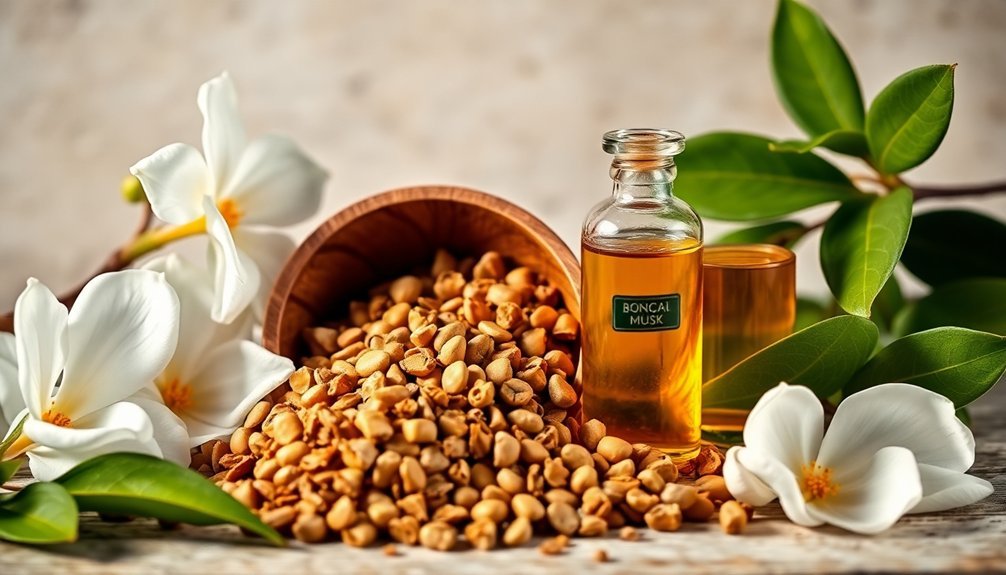
Creating luxurious perfumes with natural musk substitutes has become increasingly accessible to fragrance enthusiasts.
You'll find labdanum particularly effective in oriental and chypre compositions, where its warm, earthy notes blend beautifully with bergamot and patchouli. For a sweeter profile, try ambrette seed mixed with vanilla and warm spices like cinnamon and clove.
If you're seeking a complex woody fragrance, combine castoreum with cedarwood, pine, and sandalwood oils. You'll need to let these blends rest for 48 hours after mixing them with ethyl alcohol and distilled water.
For a simpler alternative, vanilla absolute works well as a fixative, especially when paired with florals like jasmine and ylang-ylang.
Remember to follow the recipe ratios carefully to achieve balanced, long-lasting scents.
Storage and Preservation of Botanical Musk Blends
Proper storage practices make all the difference in preserving your botanical musk blends' potency and complexity.
You'll need high-quality, airtight containers made of tinted glass or ceramic that protect your blends from light and moisture. Store these in cool, dry places away from direct sunlight, maintaining stable temperatures to preserve the integrity of your botanical ingredients.
For ideal preservation of your musk blends, follow these essential guidelines:
- Keep containers tightly sealed when not in use to prevent air exposure
- Use appropriately sized containers to avoid crowding and potential damage
- Monitor your blends regularly for any changes in scent or quality
While freeze storage isn't recommended, your well-stored botanical musk blends can last two to three years.
Remember to replace them if you notice any significant alterations in their natural aroma.
Ethical Sourcing of Plant-Based Musk Ingredients
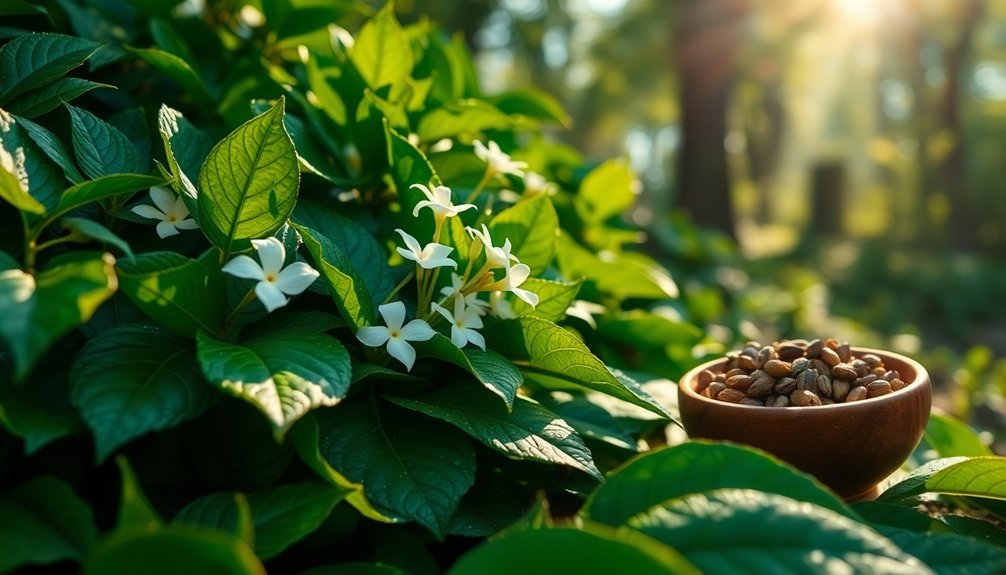
While sustainable fragrances continue to gain popularity, ethical sourcing of plant-based musk ingredients has become a cornerstone of modern perfumery. You'll find that leading fragrance companies now partner with local farmers worldwide to guarantee fair prices and sustainable practices. These partnerships extend from jasmine farmers in India to vanilla producers in Madagascar.
The shift to plant-based alternatives protects endangered species like musk deer while supporting traditional agricultural methods. Companies work directly with farming communities to provide agricultural training, fair pricing mechanisms, and improved living standards.
Through these initiatives, you're not just getting high-quality botanical musks like ambrette seed, but you're also supporting biodiversity conservation and local economies. Quality control measures guarantee these ethically sourced ingredients meet perfumery standards while maintaining environmental responsibility.
Frequently Asked Questions
Do Plant-Based Musk Alternatives Trigger Allergic Reactions More Than Traditional Musk?
No, you're less likely to experience allergic reactions with plant-based musks compared to traditional ones. They're generally gentler on your skin and respiratory system, with rare and mild reactions if they occur.
How Long Do Botanical Musk Scents Typically Last Compared to Synthetic Musks?
You'll find botanical musks typically last 4-6 hours, while synthetic musks can endure 8-12 hours. However, plant-based options like ambrette seed and musk ambrette can match synthetics when properly formulated.
Can Botanical Musk Alternatives Be Used Safely in Skincare Products?
Yes, you can safely use botanical musk alternatives in skincare products. They're typically gentler on your skin than synthetic musks and less likely to cause irritation or hormonal disruptions while providing similar fragrance benefits.
Are Plant-Based Musk Alternatives More Expensive to Produce Than Synthetic Ones?
Yes, you'll find plant-based musk alternatives are typically more expensive to produce than synthetic ones. While synthetic musks cost around $800/kg, plant-based options fall between that and natural musk's $28,000/kg price point.
Do Natural Musk Alternatives Perform Differently in Cold Versus Hot Climates?
You'll notice natural musk alternatives perform differently in varying temperatures. They're generally more subtle in cold weather but can become stronger in heat, so you'll need to adjust application accordingly.
In Summary
You've discovered that plant-based musk alternatives offer a sustainable, cruelty-free way to achieve those coveted warm, sensual notes in perfumery. Whether you're working with ambrette seed, labdanum, or angelica root, you'll find these natural ingredients create complex, sophisticated scents without environmental harm. By choosing botanical musks and following proper storage methods, you're contributing to a more ethical future in fragrance creation.
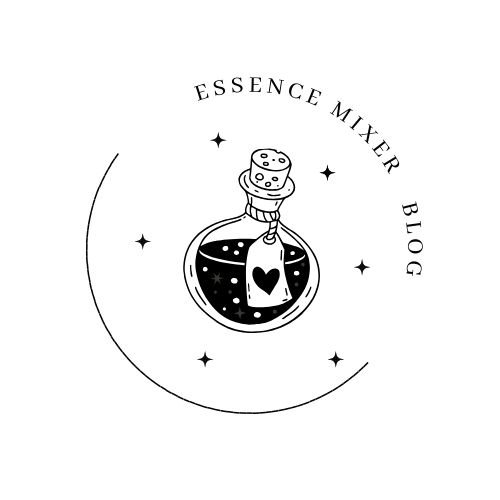
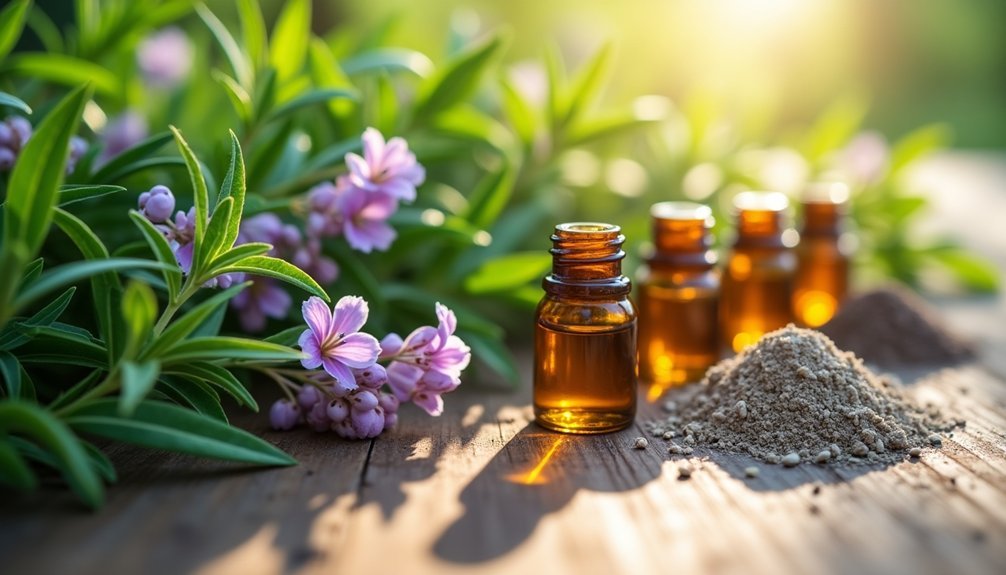
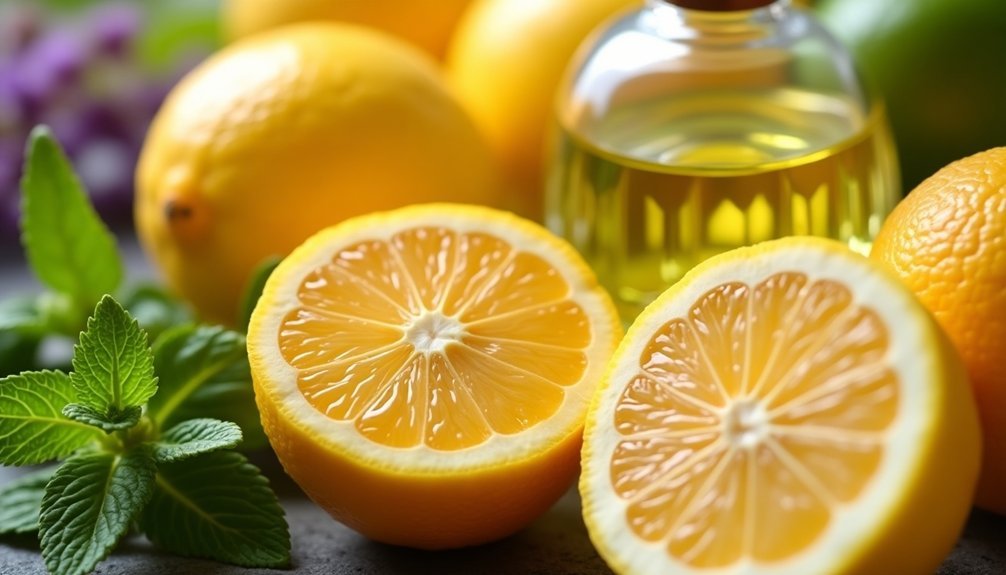
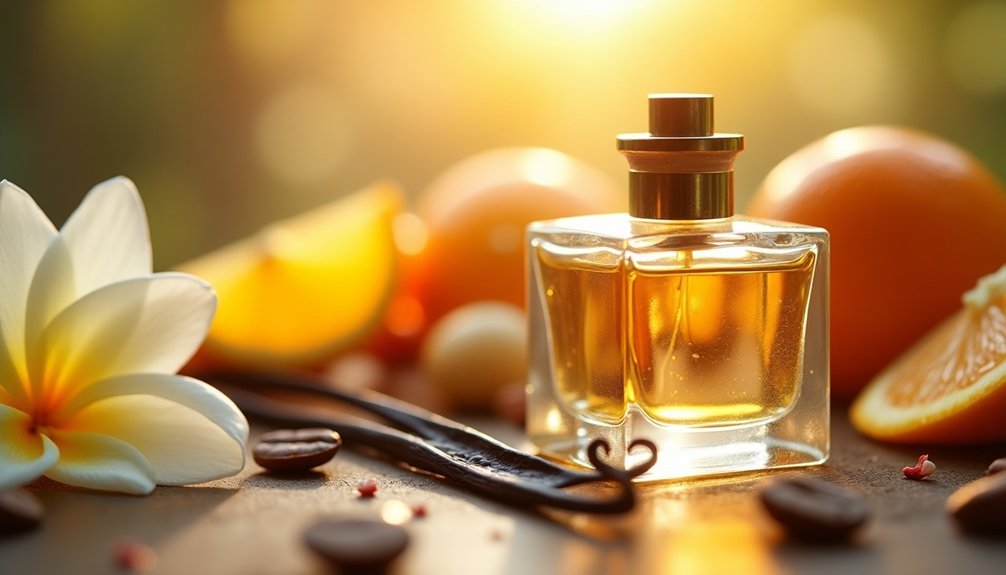
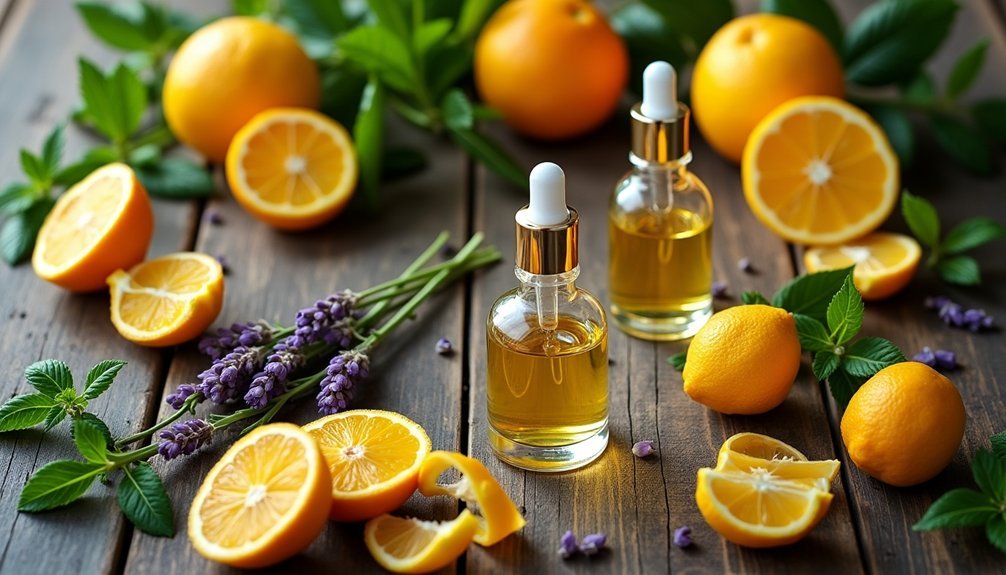
Leave a Reply